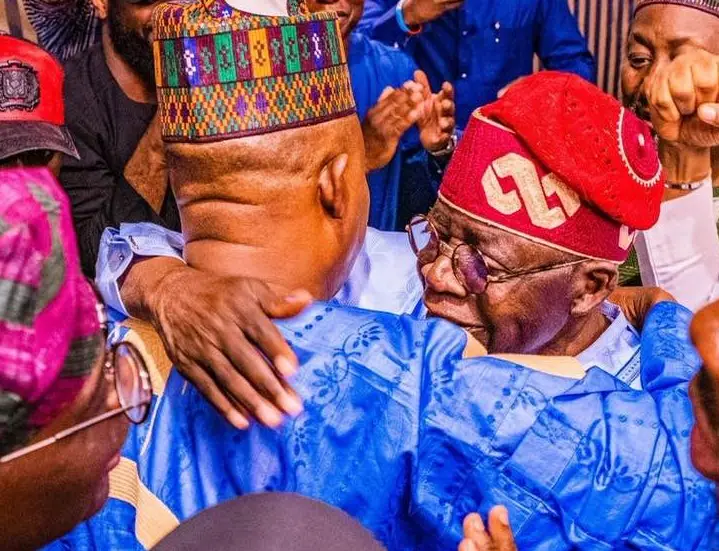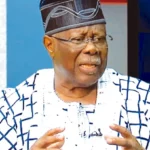Ayo Baje
“Leaders who don’t listen to their people will soon be surrounded by people who have nothing to say”-Andy Stanley
One disturbing dimension about how governance has been playing out in Nigeria’s political landscape, for the past 47 years that yours truly has been consistently expressing through his opinion essays, poems and on radio as well as television talk shows, is the compelling need to bridge the widening gap between the leadership and the led majority. Indeed, beginning with the Nigerian Herald newspaper, Ilorin (now defunct) in 1978, the focus has been on how to rejig the leadership structure in favour of the long-suffering masses, instead of being skewed to serve the whims and caprices of the few favoured, avaricious political helmsmen. Yet, painfully, it did not all start on this day.
Without mincing words, one recurring ugly decimal of the way and manner politics are run in Nigeria is that of personalising political power. To them, might makes right. They are the demigods to be feared and worshipped. There is hardly any space in their righteous hearts for criticism, including constructive ones. Hence, that perhaps explains why they step on our laws without any remorse because impunity is the name of the game. Mind you, there are still some political leaders driven by the national interest. But their voices have been drowned by the drumbeats of greed. So, they remain the exception rather than the rule. That sad situation brings up the critical issues of having feedback from members of the majority of people.
As public affairs analysts have rightly noted, feedback is crucial for a healthy democracy. And that is because “it helps ensure government accountability, promotes informed decision-making, and fosters a sense of community ownership in public affairs. By actively soliciting and incorporating citizen input, governments can better understand the needs and preferences of their constituents, leading to more effective policies and a more responsive and legitimate government.”
To drive this all-important message home to our leaders, yours truly reached out to some concerned Nigerians for their opinions regarding what they view as the wrongs to be righted to move Nigeria’s democracy forward. Hereby stated are some of the responses.
According to an author and publisher writing from Ibadan,
Mr. Friday Richard: “In my own opinion, there is nothing wrong with the leadership structure because Nigeria and the United States of America operate, or are supposed to operate, the same democratic principles.
“It is therefore, the supposed leaders themselves that are bastardising the structure.
The earlier they practice the presidential democracy according to its dictates, the better for the country because in a pluralistic society like Nigeria, presidential structure of government seems to be the best if practised as is the case in the United States of America, with the autonomy of all the constituent states and a weak centre.”
As far as the educationist and economist, Simeon Okoro, writing from Lagos, is concerned, ” The Nigerian leadership structure should be seriously reviewed and overhauled to serve the population better. Appointments should be based on true federalism, federal character representation and competencies, even distribution of resources and spread of development and promotion of national welfare and interest, irrespective of our tribal, religious, political and income affiliation and status”. Well stated, you would agree
On his part, a Lagos-based book seller and entrepreneur, Benson Chukwudi, has this to say: “The structure may not necessarily be the fault per se, but the people running the structure.
“I used to say something. “According to human calculation, for you to get two, you have to add one to one, and it becomes two.
If I bring one and I refuse to add another one, there’s no way I can get two.
This is where our leadership fails, or our leaders refuse to do. Simply do what is required, and things will go well”
In her candid opinion, the wave-making, acclaimed poet, Halima Abdulazeez, stated bluntly that: “Nigeria’s leadership crisis is rooted in valuing age and wealth over true competence, leading to missed opportunities and blame games between leaders and followers. Poor decision-making, a lack of documented progress, and unclear communication exacerbate the problem. The solution is to build leadership structures based on clarity, accountability, and merit, rewarding competence and transparency so Nigeria can finally move forward together.” What a brilliant submission!
Yet another thought-provoking comment came from renowned public affairs analyst Joseph Amaoru. According to him, “Nigeria’s leadership structure is fraught with the recruitment of people with a lack of empathy. It is a structure that is for the highest bidder. When a leader must spend tens of millions, if not hundreds of millions of Naira, to purchase the expression of interest and nomination forms, what do you expect? Can we still call that democracy?
” Democracy is about the people. In a largely poor nation, can the people afford the tons of money required to run elections in Nigeria? In effect, what we practice is plutocracy, which is the government of the rich rather than the government of the people.
“Therefore, I can say the election process from the beginning is faulty. Because the process is so highly monetised, everyone involved expects money. The people, the elected officers, the security officers and any ancillary official expect money. If you want to be a leader in Nigeria and you do not have money, you are seen as not being serious.
Like a philosopher once said, those who vote decide nothing, but those who count the votes decide everything. In a largely poor and monetised environment like Nigeria, how do we raise honest officials who will count the votes without pecuniary interest? This is the conundrum of the Nigerian situation.
“We need a lot of social engineering to effectively change the Nigerian leadership recruitment process. The people must be educated to realise that the rich are necessarily those endowed with leadership, but people who have integrity, vision, empathy, skills and experience.
“We pray for a time when money will play a reduced role in our leadership recruitment process. May that day come soon.” What an insightful and soul-searching analysis







